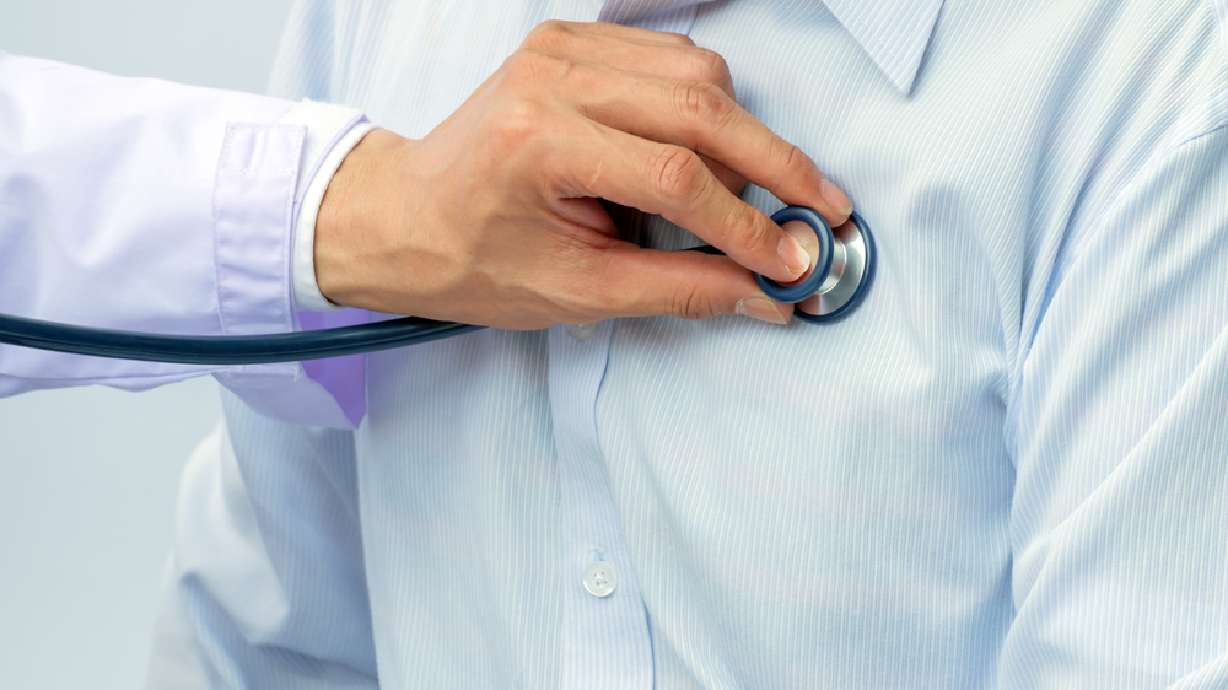Estimated read time: 3-4 minutes
This archived news story is available only for your personal, non-commercial use. Information in the story may be outdated or superseded by additional information. Reading or replaying the story in its archived form does not constitute a republication of the story.
February is American Heart Month, a time when people can focus on their heart health. Experts from the Intermountain Health Heart and Vascular Program are working to educate Utahns about ways to enhance their heart health.
Why is your heart health so important? Heart disease is the leading cause of death for both men and women. One person dies every 36 seconds in the United States from cardiovascular disease, and about 659,000 people in the United States die from heart disease each year. That's 1 in every 4 deaths.
Heart experts at Intermountain Health say it's vital that people be active participants in their own health and well-being.
To help people reduce their risk of heart disease, heart experts from the Intermountain Health Heart and Vascular Program want people to know what they can do to improve their heart health.

Here are the top five things to do today to improve your heart health and reduce your risk of heart problems, from Dr. Kent Meredith, MD, an interventional cardiologist at Intermountain Health who helps lead the heart attack treatment program at Intermountain Medical Center in Murray.
"The good news is that there several relatively simple things people can do to reduce the risk of heart disease, and taking any of these steps can have a big impact on your future heart health," Meredith said.
1. Exercise daily
Meredith recommends that you spend at least 30 minutes per day exercising.
"Ideally, this is uninterrupted and involves large muscle groups: walking, cycling, swimming, rowing, treadmill," Meredith said. "This will pay huge dividends 10 and 20 years from now, allowing you to enjoy retirement."
2. Maintain a healthy weight
Meredith suggests you set a realistic goal, and work towards a healthy weight. Being overweight raises your risk for heart disease and is linked to other serious conditions, like diabetes. Maintaining a healthy weight can benefit your health in general and goes a long way to lowering your risk for heart disease.
"Small incremental changes may be more achievable, associated with higher chance of success," Meredith said.

3. Know your risk by getting a coronary CT-scan to determine your coronary artery calcium score
"Calculate your cardiovascular disease risk, and if you're over 40, consider getting a coronary CT-scan so that you know your coronary artery calcium score. This allows early detection of 'silent' heart disease before you develop symptoms," Meredith said.
4. Know your numbers
Get an annual checkup with blood pressure, cholesterol, blood glucose measurements.
Keeping your blood pressure within acceptable ranges can keep you healthier longer.
Levels less than 120/80 mm Hg are optimal. High blood pressure is defined as 130-139 mm Hg systolic pressure (the top number in a reading) or 80-89 mm Hg diastolic pressure (the bottom number).
Control your cholesterol.
High levels of non-HDL, known as bad cholesterol, can lead to heart disease. Your health care professional can consider non-HDL cholesterol as the preferred number to monitor, rather than total cholesterol because it can be measured without fasting beforehand and is reliably calculated among all people.
Manage your blood sugar.
Most of the food people eat is turned into glucose (or blood sugar) that bodies use as energy. Over time, high levels of blood sugar can damage your heart, kidneys, eyes, and nerves. As part of testing, monitoring hemoglobin A1c can better reflect long-term control in people with diabetes or prediabetes.
5. Stop smoking. If you don't smoke or vape, don't start.
Use of inhaled nicotine delivery products, which includes traditional cigarettes, e-cigarettes, and vaping, is the leading cause of preventable death in the United States. Inhaled nicotine-related products account for about a third of all deaths from heart disease. And about a third of U.S. children ages 3-11 are exposed to secondhand smoke or vaping.
Intermountain Health has developed a Healthy Heart quiz to assess your risk. Go to intermountainhealth.org/heart to take the quiz to determine your heart health.








